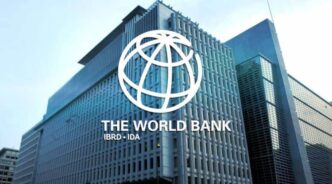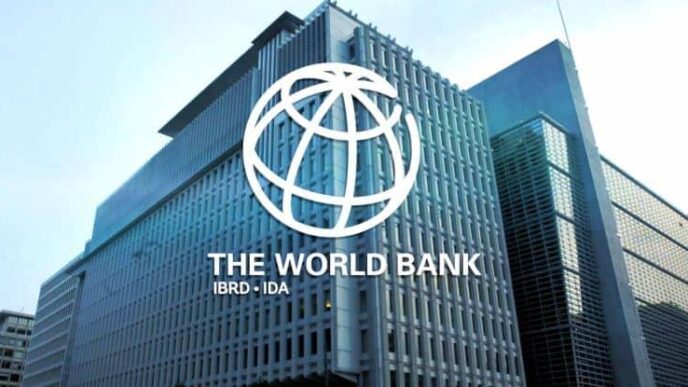The Economic and Financial Crimes Commission (EFCC) has launched a probe into a N1.3 trillion fraud involving CryptoBank Exchange, CBEX, a digital investment platform,
CBEX, operated by a group of foreign nationals in collaboration with Nigerian partners, reportedly collapsed on Monday, leaving thousands of investors stranded and unable to access their funds.
EFCC spokesperson, Dele Oyewale, noted that the commission would partner with the International Criminal Police Organisation (INTERPOL) to investigate the matter.
He also revealed that the agency had already initiated investigations into CBEX prior to its collapse.
“We had our intelligence before the incident. We were already working on it, but now that the scheme has collapsed, the major actors and their collaborators will be brought in,” Oyewale stated.
He added that efforts were underway to arrest both local and international operators behind the scheme.
“We will ensure that we save Nigerians from all these troubles associated with Ponzi schemes. Don’t forget that we already issued an advisory — the 58 companies we alerted the public about. There are many more we are currently investigating,” he said.
Oyewale further disclosed that the EFCC is actively tracking other fraudulent investment platforms operating across the country.
“We are actively working to handle the CBEX situation. We will collaborate with other regulatory agencies to ensure that Nigerians are protected from this kind of scheme. We will do our job—where recovery is possible, we will recover; where prosecution is possible, we will prosecute.
“Overall, we will do our best. Additionally, there are similar frauds across the country that people are unaware of, and we are working to uncover them. We are on the local collaborators while we are partnering INTERPOL to trace the foreign operators,” he added.
Unconfirmed reports suggest Nigerian and foreign investors were defrauded of about N1.3 trillion in USDT. Estimates place the value of stolen funds at approximately $847 million, with the figure likely to rise.
The platform, which promised 100% returns within 30 days through online trading, restricted withdrawals on April 9, 2025. Investors were shocked to discover their account balances wiped, with CBEX demanding fresh deposits to regain access.
In a message sent to users shortly before the shutdown, CBEX stated:
“All accounts need to undergo the following verification steps to ensure their authenticity. For accounts with funds below $1,000 before any losses, a deposit of $100 is required. For accounts with funds exceeding $1,000, a deposit of $200 is required. Additionally, please keep your deposit receipts to ensure you can prove the authenticity of the account during future withdrawal reviews.”
Despite the red flags, many new users signed up after the withdrawal restrictions, believing the issue to be a temporary glitch.
CBEX reportedly changed its domain name multiple times between January 2024 and February 1, 2025. Aggressively promoted via social media and peer networks, the platform enticed Nigerians with promises of high returns.
The collapse comes just days after the Securities and Exchange Commission (SEC) warned Nigerians against engaging with unregistered online trading platforms.
The SEC highlighted that under the new Investment and Securities Act (ISA) 2025—recently signed into law by President Bola Tinubu—it is now illegal for any entity to operate a forex trading platform or provide related services without registration.
Describing the law as “a landmark step in positioning Nigeria’s capital market to be more inclusive, robust, and in tune with global best practices,” SEC Director-General Dr. Emomotimi Agama stated:
“The ISA 2025 has given the Commission the legal backing to provide clarity, ensure investor protection, and enhance market confidence, especially in new and previously unregulated segments such as digital asset exchanges and online foreign exchange platforms.
“By virtue of this act, it is an offence in Nigeria for any entity that is not registered by the commission to carry out the business of online foreign exchange trading platforms or related services.
“Any business entity planning to set up a business in any of these areas is advised to visit the HOD DRM Department of the commission for further direction on how to register with the commission to avoid sanctions.”
The collapse has triggered widespread outrage. In Ibadan, Oyo State, angry investors stormed the CBEX office in Oke Ado, forcibly entering the premises and carting away office furniture and equipment. In Abuja, CBEX’s office in the Jahi district is under lock and key.
In March, the EFCC published a list of 58 companies involved in illegal investment operations across Nigeria. According to Oyewale, several of these companies have been prosecuted, with five already convicted. Another five have pleaded guilty and are awaiting further legal proceedings, while the remaining are yet to be arraigned.














